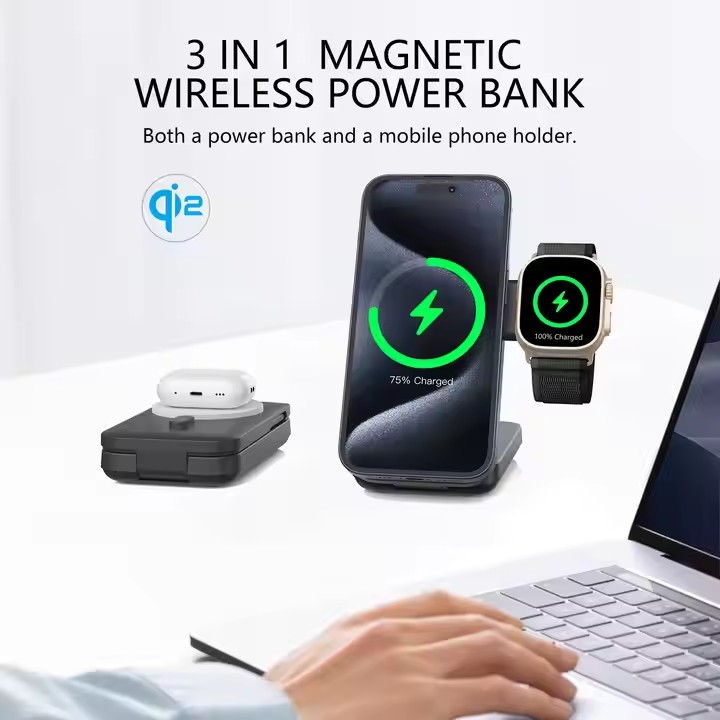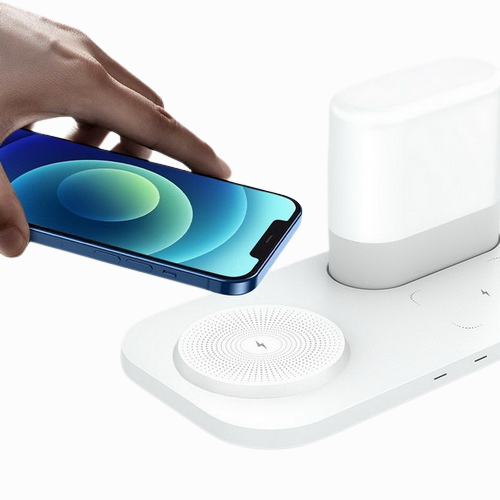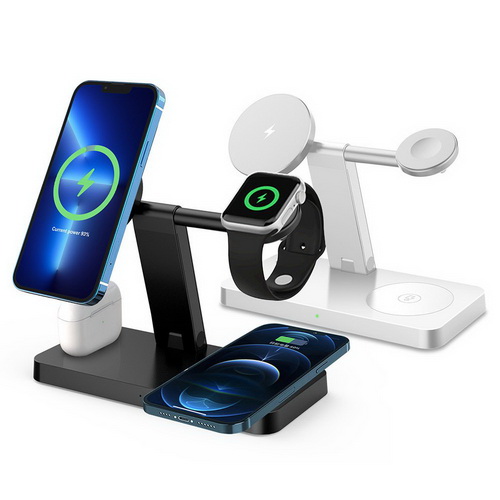Wireless Charging Technology & Battery Selection: A Data-Driven Guide for Product Development
Wireless charging technology is rapidly evolving, and battery chemistry significantly impacts performance and user experience. This article analyzes Qi1 vs. Qi2 wireless charging and battery material selection, providing actionable insights for manufacturers, based on supplier research and market trends.
1. Wireless Charging: Qi1 vs. Qi2 – Which One Should You Choose? Key Differences & User Experience
- Qi1 Wireless Charging
- 15W fast charging lasts only 30 sec – 1 min, then drops to 7.5W.
- Best for overnight charging or users who don’t need rapid top-ups.
- Qi2 Wireless Charging
- Extends 15W fast charging to 3–4 min, but still falls back to 7.5W.
- Minimal real-world improvement for most users.
Qi1 vs Qi2 wireless charging,Cost Comparison
- Qi2 increases unit cost by 2–2–4.30, while competitors offer the upgrade for just 1–1–2.
- For budget-friendly products, this premium may not be justified.
Is Qi2 worth the extra cost? Recommendation
✅ Choose Qi1 for most cases – Unless targeting premium markets (e.g., Apple accessories).
✅ Demand real-world Qi2 testing – Verify if the extra 2–3 minutes of fast charging matter.
⚠️ Avoid overpaying for marketing hype – Qi2’s value is limited unless it sustains 15W longer.

2. Battery Chemistry Comparison: Which One Fits Your Product?
Different battery types offer trade-offs in energy density, lifespan, and safety:
| Battery Type | Pros | Cons | Best For |
|---|---|---|---|
| NMC | High energy, long life | Expensive | EVs, premium devices |
| Li-Po | Lightweight, thin | Shorter lifespan (~300 cycles) | Phones, slim power banks |
| LCO | Compact, high energy | Overheating risk | Small electronics |
| LMO | Safe, heat-resistant | Lower energy density | Medical/industrial use |
Which battery lasts the longest,Best Battery Choice for Wireless Charging Products
? Li-Po (Lithium Polymer) – Best for ultra-thin wireless power banks (e.g., 5.85mm designs).
? NMC (Nickel Manganese Cobalt) – Ideal for high-end devices needing long-term durability.
? Avoid LCO – Unless thermal management is excellent (risk of overheating).
Compare Qi1 vs Qi2 wireless charging & battery types (Li-Po, NMC, LCO) for optimal product design. Data-driven recommendations for manufacturers.
3. Future Trends & Strategic Recommendations
Emerging Technologies to Watch
- Solid-state batteries – Potential for higher density & safety (still in development).
- Silicon anode batteries – Could enable thinner designs with faster charging.
Winning Market Strategies
- Premium Segment → Focus on Qi2 + premium materials (metal/liquid silicone).
- Mass Market → Optimize cost with Qi1 + Li-Po batteries.
- Competitor Response → If rivals use ultra-thin designs, offer better pricing (10–15% lower) or bundled accessories (e.g., power bank + phone case).
Supply Chain Optimization
- Diversify suppliers – Avoid overpaying for single-source components.
- Secure tech partnerships – Collaborate with battery innovators for early access to breakthroughs.
4. Final Decision-Making Checklist
✔ Qi1 is the smarter choice unless Qi2 proves significant real-world benefits.
✔ Li-Po batteries are best for slim, portable wireless chargers.
✔ NMC batteries suit high-end products where longevity matters.
✔ Monitor solid-state battery progress – The next big leap in energy density.
By balancing performance, cost, and user needs, brands can develop competitive wireless charging products without overspending on unnecessary tech.



